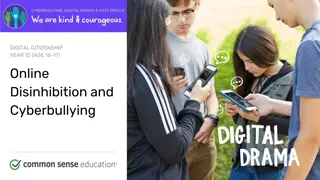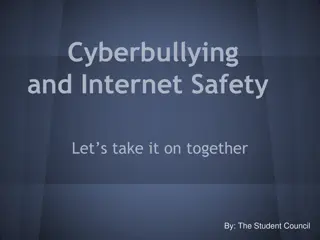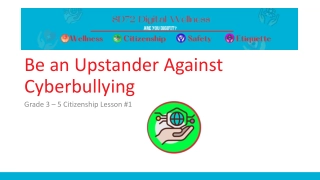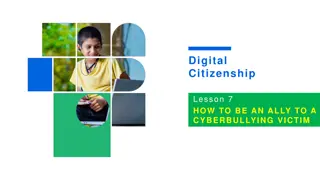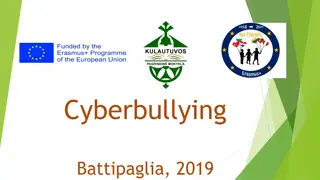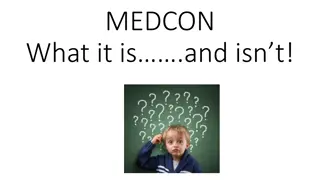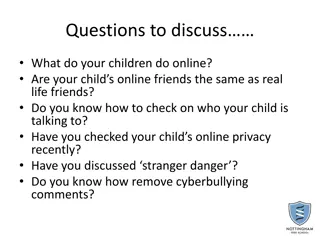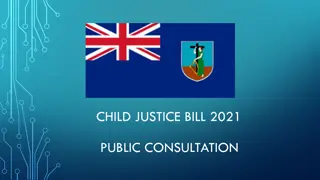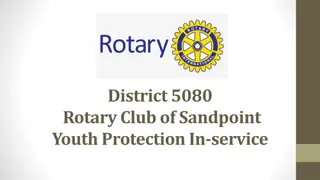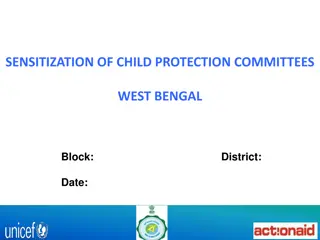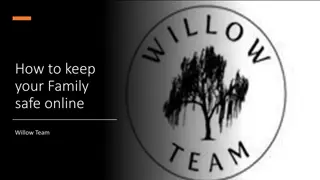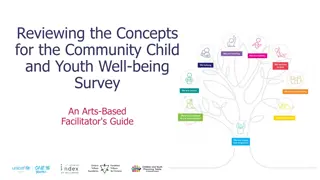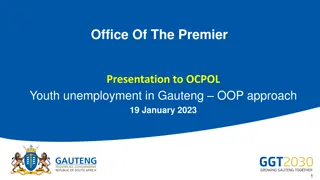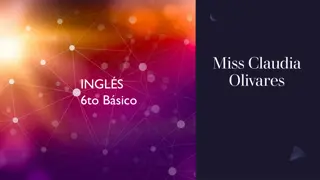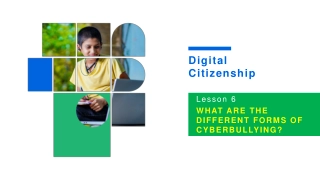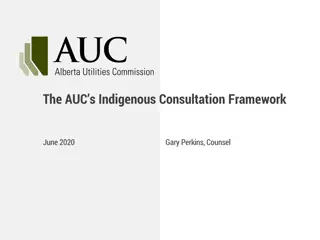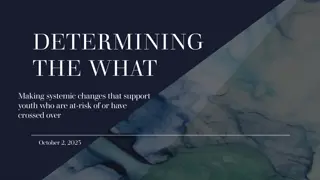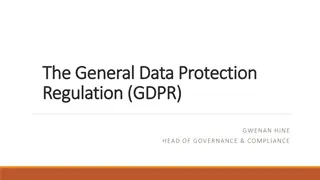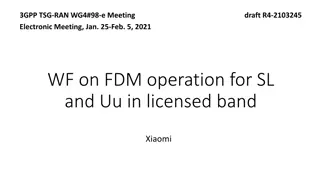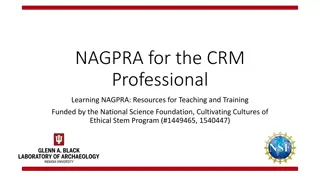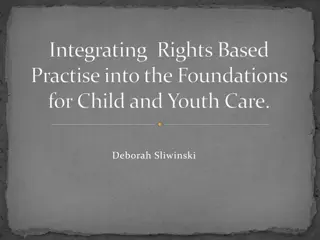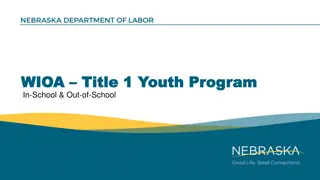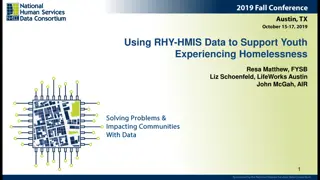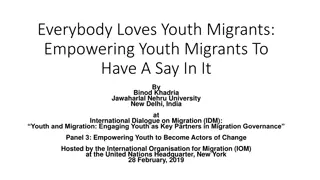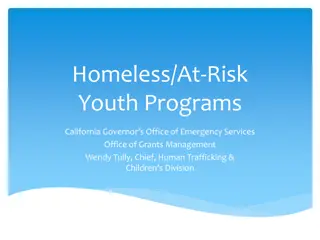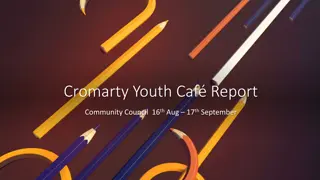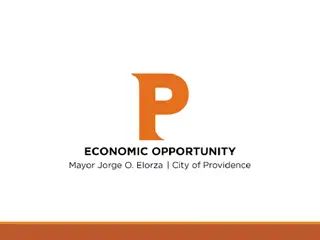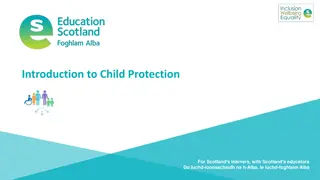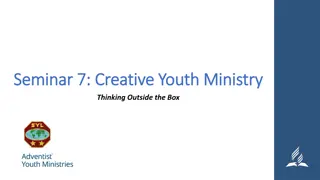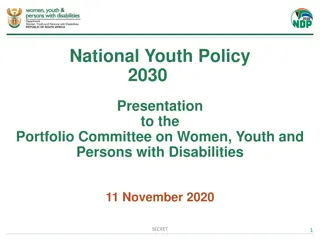Operation Uncool: Online Youth Consultation on Cyberbullying and Child Online Protection
Operation Uncool is a youth-centered initiative aiming to combat cyberbullying through online consultations and engaging activities on Rerights.org. The project focuses on empowering young people aged 12-17 to share their thoughts on digital technology and online rights. Various missions and operations explore themes such as definition, resolution, response, and support related to cyberbullying, inviting educators to conduct workshops for organized groups. Outreach efforts include social media, blogs, newsletters, and collaboration with international experts to address cyberbullying effectively.
- Cyberbullying prevention
- Online youth consultation
- Child online protection
- Rerights.org
- Digital rights
Download Presentation

Please find below an Image/Link to download the presentation.
The content on the website is provided AS IS for your information and personal use only. It may not be sold, licensed, or shared on other websites without obtaining consent from the author. Download presentation by click this link. If you encounter any issues during the download, it is possible that the publisher has removed the file from their server.
E N D
Presentation Transcript
Operation Uncool: Online Youth Consultation on Cyberbullying Council Working Group on Child Online Protection 10 October 2016
Background As per Resolution 179, the Group recommended to conduct one-day online consultations for youth, prior to its meetings. This will allow the Group to be more inclusive and ever-more agile in responding to current and emerging technical and policy needs. We partnered with Rerights.org, a youth-centered engagement platform; we now have our consultation live https://rerights.org/operation-uncool
What is RErights? Young people aged 12-17 submit content (e.g. surveys, text, photos, videos, artwork) to complete activities Missions and Operations exploring important themes and issues An online community, available in multiple languages, where young people around the world share their ideas and opinions about digital technology and their rights in the digital age
Operations & Missions
Operation Uncool Operation Uncool contains Missions about four important themes definition, resolution, response, support Mean-ing What is cyberbullying? Response Who should help? Support What support is there? Unkind How can we resolve it? Rerights reaches out to individual young people and invites educators to run workshops for organised groups. Data is presented online as infographics, blogs, email updates and social media
Outreach (what we did) ITU RErights Social media ITU Blog and Newsletter COP partners Personal network Social media, blogs, infographics Newsletters to RErights agents Consulted with international experts on how to talk to young people about cyberbullying Mobilised the project s Critical Friends and Project Advisory Board Existing networks
Outcomes Operation Uncool invites young people to tell us what they think about cyberbullying we want to find out what young people have to say in their own words
Responses For young people, cyberbullying is: when people use the networks of the Internet to commit injuries repeatedly spreading negative rumours about someone online when people say or do hurtful things online threats and intimidation Not everything is bullying: Cyberbullying is not when a person thinks or has a different opinion of you, because the Internet is an open network, but we must always behave with respect for others. Cyberbullying is unlike constructive criticism or giv[ing] opinions on a person.
Responses Young people discuss the complexities of uncool behaviour and the effects In friendly joke enjoy all, also the friendly joke is mutual. Bullying is one-sided and who suffers is not having fun at all Cyberbullying is when a web surfer denigrates the image of a person, humiliates and hurts your identity publicly. Play is when healthily Internet users make a joke without affecting the morale of the others Cyberbullying is more serious teasing or jokes The difference is pretty significant because cyber bullying create more havoc than the joking or teasing Cyberbullying is something much more dangerous than a joke
Lessons Learned Network: Engage a wider network of partners to implement and run the consultation. We encourage Member States to allocate more resources or provide greater access to relevant local networks/entities. Workshop: Engage different platforms and partners could help to run consultations in groups and not only at the individual level. Topic: Consider different approaches to choosing the topics for consultation to be sure that young people are interested in and comfortable about contributing. Language: Include other major languages to raise response rates and geographical reach. Video content: Co-develop video content with young people to embed their voices into the ITU s deliberations in an engaging and insightful way. Timing: Delivering consultation during the school year may help raise response rate Youth consultation: Recruit ITU Youth Panel from Member States
Components for success Resources Financial or in-kind support Incentives Infrastructure Connections Bottom-up approach Local/personal networks Participatory design Intergenerationally defined Stakeholder involvement Long-term Engagement Systematic Rollout planning Long-term engagement strategy Driven from ground up Participatory design Connections Resources


